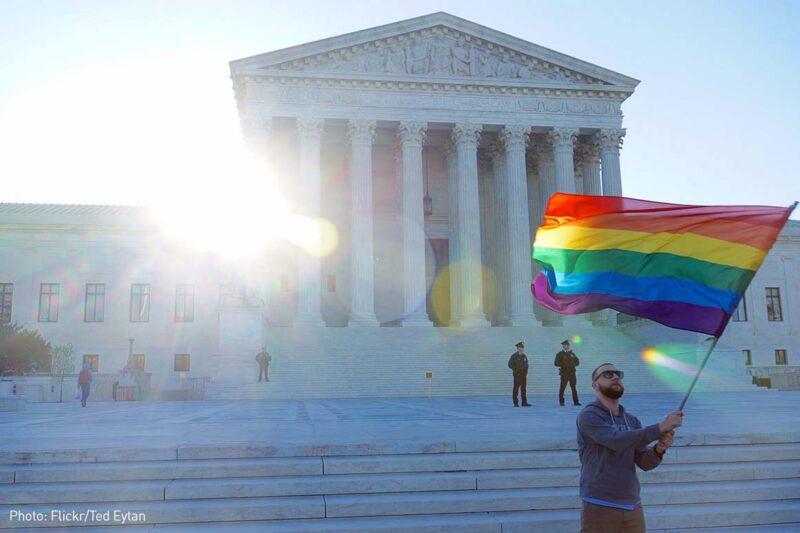
On June 25, 1941, President Franklin D. Roosevelt signed Executive Order 8802, prohibiting discrimination based on race, creed, color, and national origin in the national defense industry. For 75 years since, there has been a bipartisan tradition of prohibiting discrimination with taxpayer dollars throughout federal contracting.
Some in Congress are now fighting to put an end to it.
Last month, in the wee morning hours, Rep. Steve Russell (R-Okla.) offered an amendment to the defense authorization bill that would require every federal agency to allow religiously affiliated contractors and grantees — including large institutions like hospitals and universities — to discriminate in hiring with taxpayer funds. The Russell amendment could gut existing protections that prohibit discrimination against LGBT and women workers, including a historic executive order signed by President Obama in 2014 that prohibits businesses that contract with the federal government from discriminating on the basis of sexual orientation and gender identity.
The Russell amendment could permit religiously affiliated federal contractors and grantees to claim a right to (among other things):
- Fire a woman who uses birth control or who is pregnant and unmarried.
- Fire a man who marries his same-sex partner.
- Refuse to interview anyone, however qualified, based on their religious beliefs, effectively adding language to job applications that says: “Jews, Sikhs, Catholics, Mormons need not apply.
It is for this reason that Reps. Charlie Dent (R-Pa.) and Adam Smith (D-Wash.) offered a bipartisan amendment to strip this discriminatory provision from the defense bill. However, the House Rules Committee blocked the full House from being able to vote on the amendment. Because of this, the provision is almost certain to be included in the bill that is passed by the House this week. This fight, however, is far from over.
In happier news, Reps. Bobby Scott (D-Va.) and Joe Kennedy III (D-Mass.) just introduced legislation — the Do No Harm Act — to amend the Religious Freedom Restoration Act to ensure that it cannot be used to discriminate against or otherwise harm others. The legislation identifies specific circumstances, such as civil rights laws and laws that ensure access to healthcare, where RFRA cannot be invoked to trump the rights of others.
The Do No Harm Act is needed because RFRA is now being used far too often as a tool for institutions and individuals to harm others and undermine core American values. Enacting the Do No Harm Act would restore federal RFRA to its original intent of protecting religious exercise and provide a model for states looking to expand protections for religious freedom without allowing harm to others.
Stay informed
Sign up to be the first to hear about how to take action.
By completing this form, I agree to receive occasional emails per the terms of the ACLU's privacy statement.
By completing this form, I agree to receive occasional emails per the terms of the ACLU's privacy statement.
